Polygonatum – huang jing,Polygonatum sibiricum,Polygonati Rhizoma,solomon’s seal,solomon’s seal for sale,huang jing herb,dried polygonatum,huang jing tcm,Polygonatum
[Family, Genus and Medicinal Parts] This product is the rhizome of the Liliaceae plant Polygonatum vulgaris.
[Naturaleza, sabor y meridianos] Dulce, plano. Penetra en los meridianos del bazo y del pulmón.
[Efficacy] Nourish the spleen and lungs.
[Clinical Application] It is used for symptoms such as spleen and stomach weakness, physical fatigue, lung deficiency, cough, thirst, and post-illness weakness.
This product has the effect of tonifying the middle and replenishing qi and moistening the lungs. It is often used in combination with Codonopsis pilosula, Atractylodes and other medicines for diseases such as spleen and stomach weakness and physical fatigue. For lung deficiency and dryness cough, it is often used with Adenophora adenophora, Asparagus asparagus, Ophiopogon japonicus, etc. Cooperate with the application.
In addition, this product can also be used to treat diabetes, and is often used in combination with yam, astragalus, trichosanthin, and wolfberry.
[Prescription name] Polygonatum odoratum, Polygonatum odorifera (for steaming.)
[Dosis general y uso] De tres a cinco qian, decoger y tomar.
[Excerpt from the literature] “Bielu”: “Building the middle and replenishing Qi, removing rheumatism and calming the five internal organs.”
“Compendium of Materia Medica”: “Replenish all deficiencies…fill the essence.”
Polygonati, [huang jing], Chinese medicinal material, alias: Polygonati Rhizoma, Chicken Head Root, Yellow Chicken Vegetable, Tiger Ginger, Immortal Surplus Grain, Qi Jing, English name: Polygonati Rhizoma, main functions: nourishing Qi, nourishing yin, strengthening the spleen, Nourishes the lungs and nourishes the kidneys
The Chinese medicinal material Polygonatum is a yin-tonifying medicine, which is the dried rhizome of Polygonatum d’unnanensis, Polygonatum sibiricum or Polygonatum polygonatum of the Liliaceae family.
Polygonatum is sweet and neutral in nature and returns to the spleen, lung, and kidney meridians.
Polygonatum is moist and sweet in nature, flat but not biased, and has a mild effect. It enters the spleen, lung, and kidney meridians and is a tonic for Qi and Yin. It not only nourishes yin and moisturizes the lungs, but also nourishes the kidneys and essence, and also nourishes the spleen and qi. It is a good nourishing medicine and is good at treating various syndromes of lung and kidney deficiency and qi and yin deficiency.
This product contains polysaccharides, saponins, flavonoids and other ingredients, and has the effects of nourishing qi and yin, strengthening the spleen, moistening the lungs and nourishing the kidneys.
It is the dried rhizome of the Liliaceae Polygonatum sibiricum Red., Polygonatum cyrtonema Hua or Polygonatum kingianum Coll.et Hemsl. It has the effects of nourishing yin and moistening the lungs, nourishing the spleen and replenishing qi, nourishing the kidneys and replenishing essence. Indications: Cough due to Yin deficiency, dryness of the lungs, cough, spleen weakness, lack of food, dry mouth, quenching thirst; kidney deficiency, soreness of waist and knees, impotence and spermatorrhea, tinnitus, dark eyes, premature graying of hair and beard, physical weakness and thinness, rheumatoid arthritis, and tinea disease.
Where is Polygonatum mainly produced?
Mainly produced in Guizhou, Hunan, Hubei, Sichuan and Anhui.
Where are the main parts of Polygonatum used as medicine?
The medicinal parts of Polygonatum japonica:
The dried rhizomes of Liliaceae plants Polygonatum kingianum Col.et Hems1., Polygonatum sibiricum Red. or Polygonatum cyrtonema Hua.
Characteristics of the medicinal parts of Polygonatum japonica:
Rhubarb essence is in the shape of thick and fleshy nodules, which can be more than 10cm long, 3~6cm wide and 2~3cm thick.
The surface is light yellow to yellow-brown, with links, wrinkles and fibrous root marks. The stem marks on the upper side of the nodules are disc-shaped, with a concave circumference and a protruding middle. It is hard and tough, not easy to break, the cross section is horny, light yellow to yellowish brown. The smell is slight, the taste is sweet, and it is sticky when chewed.
Polygonatum odorata is in the shape of a nodular curved column, 3 to 10 cm long and 0.5 to 1.5 cm in diameter. The nodules are 2 to 4 cm long, slightly conical, and often branched. The surface is yellow-white or gray-yellow, translucent, with longitudinal wrinkles, round stem marks, and a diameter of 5~8mm.
Ginger-shaped polygonatum is in the shape of long nodules, varying in length, with a constant number of connected nodules. The surface is grayish-yellow or yellowish-brown, rough, with prominent disc-shaped stem marks on the upper side of the nodule, 0.8~1.5cm in diameter. Those with a bitter taste cannot be used medicinally.
How is Huangjing recorded in ancient historical books?
“Famous Doctors”: “It is mainly used to replenish the vital energy, remove rheumatism, soothe the five internal organs, and take it for a long time to lighten the body and prolong life.
“Rihuazi Materia Medica”: “Replenishes the five types of labor and seven injuries, helps the muscles and bones, relieves hunger, withstands cold and heat, benefits the spleen and stomach, and moisturizes the heart and lungs.
“Southern Yunnan Materia Medica”: “Tonify deficiency and add essence.”
“Compendium of Materia Medica”: “Replenishes all deficiencies, relieves cold and heat, fills the essence, and removes three corpse insects.
“Ben Jing Feng Yuan”: “Polygonatum japonica can widen the middle and replenish qi, harmonize the five internal organs, replenish the muscles, and strengthen the bone marrow, all of which can nourish yin.”
“Compendium of Materia Medica”: “It nourishes Qi and blood and moisturizes it.
Función y eficacia
Polygonatum has the effects of nourishing qi and yin, strengthening the spleen, moistening the lungs and nourishing the kidneys.
What are the main functions and clinical applications of Polygonatum?
Huang Jing is used for spleen and stomach qi deficiency, physical fatigue, insufficient stomach yin, dry mouth and less food, lung deficiency and dry cough, labor cough and hemoptysis, insufficient blood and essence, soreness and weakness of the waist and knees, and early hair loss.
White, internal heat quenches thirst.
Lung qi and yin deficiency syndrome
To treat dry cough with less phlegm caused by damage to both lungs, qi and yin, it is often used with Adenophora adenophora and Fritillaria fritillaris;.
To treat chronic cough caused by lung and kidney yin deficiency, it can be used alone or in combination with Rehmannia glutinosa, Baibu, and Asparagus.
Spleen and stomach qi and yin deficiency syndrome
It can be used to treat thirst, polydipsia, lack of Qi and fatigue, easy hunger and weight loss caused by deficiency of Qi and Yin, internal heat and body fluid damage. It is often used with red ginseng, astragalus, and kudzu root.
Kidney essence deficiency syndrome
·To treat dizziness, soreness of the waist and knees, and premature graying of hair and beard caused by insufficient kidney essence, you can take the ointment alone.
To treat liver and kidney deficiency, deficiency of essence and blood, soreness of waist and knees, insomnia and dreaminess, tinnitus and forgetfulness, hair loss, premature graying of beard and hair, etc., it can be combined with polygonum multiflorum, Ligustrum lucidum, and Eclipta lucidum;
To treat kidney deficiency and low back pain, it can be cooked with black beans.
What other effects does Huang Jing have?
In my country’s traditional food culture, some Chinese medicinal materials are often widely eaten as food ingredients among the people, that is, substances that are both food and Chinese medicinal materials according to tradition (i.e., edible medicinal substances). According to documents issued by the National Health Commission and the State Administration for Market Regulation, Polygonatum can be used as both medicine and food within a limited range of use and dosage.
Commonly used medicinal recipes for Polygonatum japonica are as follows:
Dryness of the lungs, cough, weakness of Qi and blood, mental decline
10g each of wolfberry, longan, and polygonatum, 4 pigeon eggs, and 50g rock sugar.
Wash the wolfberry and longan meat, wash and chop Polygonatum sibiricum; add the above 3 flavors to 750mL of water and boil for 15 minutes. Crack in the pigeon eggs, add the rock sugar and cook until it melts. Let the pan cool down. Eat eggs and drink soup.
Tuberculosis, hot flashes and coughing up blood
Polygonatum 30g, rock sugar 50g.
Take Huangjing and wash it with water. After soaking in water, add 1 bowl of water. Add rock sugar, cook over low heat for 60 minutes, remove from pan and let warm. Eat Huangjing and drink soup
Diabetes disease (lung and stomach yin deficiency type)
24g Polygonatum odoratum, 30g Polygonatum odorifera, 1 pig pancreas, stew and eat.
What are the compound preparations containing Polygonatum?
Shenjing Zhike Pills
Replenishing qi and nourishing yin, producing body fluid and quenching thirst. It is used for thirst caused by deficiency of both Qi and Yin, internal heat and body fluid damage. Symptoms include lack of Qi and fatigue, dry mouth and polydipsia, easy hunger, and weight loss. People with type 2 diabetes have the above syndromes.
Erjingwan
Tonifying the kidney and replenishing essence, nourishing yin and moisturizing dryness. It mainly treats liver and kidney yin and essence deficiency syndrome.
Jiuzhuan Huangjing Pill (Elixir)
Nourishes essence and blood, and is used for deficiency of both qi and blood.
Jingniao pellets
Nourishes the liver and kidneys, replenishes essence and blood, and strengthens muscles and bones.
Modern research progress on Polygonatum
This product has various pharmacological effects such as improving immunity, anti-fatigue, improving memory, and antioxidant.
Cómo utilizar
Polygonatum has the effects of nourishing qi and yin, strengthening the spleen, moistening the lungs and nourishing the kidneys. It can be taken in decoction, porridge or soup. But no matter which method is used, it needs to be taken according to the doctor’s instructions.
How to use Polygonatum Correctly?
When decoction of Polygonatum japonica is taken orally, the usual dosage is 10~15g; if fresh product is used, the dosage is 30~60g.
When using Polygonatum sibiricum for external use, decoct the appropriate amount of Polygonatum sibiricum and then scrub the affected area, or soak it in wine or vinegar and apply it to the affected area. Polygonatum is generally taken in decoction and decoction, but it can also be made into powder or pills. However, the use of Chinese medicinal materials requires syndrome differentiation and treatment, and should be used under the guidance of professional Chinese medicine practitioners. They should not be used at will, let alone listen to traditional Chinese medicine prescriptions and advertisements. In addition, Polygonatum can also be used for daily health care. Commonly used methods of consumption are as follows:
Cooking porridge (polygonatum vulgaris porridge): 30g of polygonatum odorifera, 100g of japonica rice. Decoct Polygonatum sibiricum in water to extract juice, add japonica rice and cook until the porridge is cooked, add appropriate amount of rock sugar and eat. It is used for yin deficiency, dryness of the lungs, cough, dry throat, and weak spleen and stomach.
Soaking in wine: Mixing traditional Chinese medicines such as Polygonatum and Angelica sinensis into wine can nourish yin, replenish deficiency, replenish qi and nourish blood.
Note: Polygonatum is sweet in taste and mild in nature, so it can be used as a tonic, but it should not be soaked in water for a long time.
How to prepare Polygonatum?
Polygonatum japonica: Take the original medicinal materials, wash them, moisten them slightly, cut them into thick slices, and dry them.
Liquor Huangjing: Take pure Huangjing, mix it with rice wine, put it in a stew pot, seal it tightly, and heat it with water or steam until the wine is absorbed. Or steam it in a steamer until the inside and outside are moist and the color is black, take it out, and dry it in the sun until the outer skin is slightly dry, then cut into thick slices. dry. For every 100kg of Polygonatum odorifera, use 20kg of rice wine.
Steamed polygonatum: remove impurities from the raw medicinal materials, wash, drain, moisten thoroughly, place in a steamer, steam until the inside and outside are moist and black, take it out, and dry or dry it on the outside until it is moist on the inside. Cut into thick slices, then stir in the juice obtained during steaming, drain it and dry it.
Which drugs require special attention when used together with Polygonatum?
El uso combinado de la medicina tradicional china y la medicina china y occidental requiere una diferenciación sindrómica y un tratamiento clínico individualizado.
Si está tomando otros medicamentos, consulte a su médico antes de tomar estos medicamentos e infórmele sobre todas las condiciones médicas diagnosticadas y los tratamientos que esté recibiendo.
Instrucciones de medicación
Polygonatum can easily help dampness, so it should not be taken by those with spleen deficiency and dampness, cough with excessive phlegm, and moderate cold with loose stools.
What precautions should be taken when using Polygonatum?
People with spleen deficiency and dampness, cough with excessive phlegm, moderate cold and loose stools, and fullness and qi stagnation should not take it.
Pregnant and lactating women: If you are pregnant, planning to become pregnant or are lactating, please inform your doctor in time and consult whether Chinese medicine can be used for treatment.
·Niños: La medicación en niños debe realizarse bajo guía médica y supervisión de un adulto.
·Conserve los materiales medicinales de forma adecuada y no entregue los materiales medicinales que utiliza a otras personas.
How to identify and use Polygonatum?
The difference between Polygonatum and Chinese yam
Both Polygonatum japonica and Chinese yam are sweet and mild in nature, and mainly belong to the three meridians of the lung, spleen, and kidney. They are products that nourish both qi and yin. They can also be used to treat cough due to lung deficiency, fatigue due to spleen deficiency due to lack of food, low back pain, soft feet, and thirst due to kidney deficiency.
However, Polygonatum japonicus has better power to nourish yin and moisturize dryness than yam, so it is mostly used for people with dry cough due to yin deficiency and Yin injury to the spleen and stomach, dry mouth, little food, dry stools, red tongue without coating; while yam has better qi-tonifying power than Polygonatum japonicum, and it can be used for both. It is astringent in nature, can reduce astringency and stop diarrhea, strengthen semen, shrink urine and stop vaginal discharge. It is suitable for asthma and cough due to lung deficiency, loose stool due to spleen deficiency, spermatorrhea due to kidney deficiency, enuresis, frequent urination and excessive leucorrhea.
Those with spleen deficiency and loose stools should not use Polygonatum japonica; those with dry and constipated stools should not use yam.
The difference between raw polygonatum, steamed polygonatum and distilled polygonatum
Polygonatum is sweet and neutral in nature. Returns to the spleen, lung, and kidney meridians. It has the functions of nourishing qi and nourishing yin, strengthening the spleen and lungs, and nourishing the kidneys. It can sting the throat when used raw, so it is often steamed. After steaming, it can enhance the effect of nourishing qi and yin, strengthening the spleen and moistening the lungs. It is mostly used for cough due to lung deficiency, weak spleen and stomach, physical fatigue, dry mouth, less food, internal heat and thirst, and can remove the numbing smell to avoid irritating the throat. And because the taste is sweet and moist, taking it for a long time will hinder the transportation and transformation of the spleen and stomach.
The wine makes it nourishing but not greasy, and can better play the role of nourishing the kidneys and blood. It is mostly used for kidney deficiency and essence deficiency, dizziness, etc.
Preguntas más frecuentes de los pacientes
Is Huang Jing cooling or hot in nature?
Polygonatum odorata is neither hot nor cool, but a neutralizing drug with certain nourishing properties. It has the effects of nourishing qi and yin, strengthening the spleen, moistening the lungs, and nourishing the kidneys.
It is used for spleen and stomach qi deficiency, body fatigue and fatigue, insufficient stomach yin, less food and drink, dry cough due to lung deficiency, hemoptysis due to fatigue, insufficient blood and essence, soreness and weakness of the waist and knees, premature graying of beard and hair, and internal heat to quench thirst.
Can Huang Jing be soaked in water for a long time and drank?
It is not suitable to soak in water for a long time.
Polygonatum is a kind of Chinese medicinal material, which may contain some harmful ingredients to the human body. Generally, it can only be taken under symptomatic conditions. Moreover, Polygonatum has strong nourishing properties for the human body. Taking too much will increase the body’s Moisture can easily cause dampness and cold qi stagnation in the body. Therefore, once the symptoms are relieved during treatment, you need to stop taking it immediately to avoid taking too much and adversely affecting your health.
clinical application
1. To treat long-lasting cough, long-term cough due to fatigue, dry cough with little phlegm, shortness of breath and fatigue, and deficiency of both Qi and Yin. It can be used alone or with Adenophora japonicus, Ophiopogon japonicus, Fritillaria fritillaris, Rhizoma tuber, and almond to help. It nourishes yin and moisturizes the lungs, resolves phlegm and calms coughs; for those who cough up blood, add white root, donkey-hide gelatin, Eclipta grass, rock sugar, etc. to nourish yin, cool blood and stop bleeding; for those who also have bone steaming and hot flashes, add Digupi, Shengdi Astragalus and Anemarrhena are used to nourish yin, reduce fever and remove steam; for those with shortness of breath and fatigue, use astragalus, Codonopsis pilosula, Schisandra chinensis, etc. to replenish qi and restrain the lungs.
2. It is suitable for treating dry cough, dry and itchy nose and throat, whether it is cold or hot. If the syndrome is cold and dry, it can be used with perilla, almond, aster, etc., to warm and dispel dryness, moisturize and relieve cough; if the syndrome is warm and dry, it can be used with mulberry leaves, almonds, Fritillaria, etc., to clear away dryness and moisten the lungs. Cough relief.
3. Treat spleen deficiency with yellowish complexion and tiredness, lack of energy when eating less, or dry mouth with insufficient body fluids, red tongue with less coating. For those with spleen and stomach qi deficiency, use Codonopsis pilosula, yam, Atractylodes macrocephala, tangerine peel, etc. to strengthen the spleen and qi and whet the appetite; for spleen and stomach yin damage, use Northern Adenophora, Ophiopogon japonicus, Polygonatum odorifera, Guya, etc. to nourish yin, benefit the stomach and promote body fluid; For those with yin and yin deficiency, it should be combined with ginseng, Ophiopogon japonicus, yam, etc. to achieve the effects of nourishing qi and yin, strengthening the spleen and stomach.
4. To treat thirst, it is effective to decoct a single ingredient in large doses; for severe heat, use Trichosanthes trichosanthes, Anemarrhenae, and Gypsum as the equivalent to clear away heat and nourish yin and promote fluid production; for severe yin damage, use the same combination as Rehmannia glutinosa, Asparagus asparagus, and Radix Adenophora. , to nourish yin, promote body fluid and quench thirst.
5. To treat long-term thirst and symptoms of yin damage and yang, it can be used with Rehmannia glutinosa, yam, cornus, aconite, cinnamon, etc. to collect yin and yang and supplement it.
6. To treat Qi and Yin deficiency, use astragalus, American ginseng, yam, and dendrobium as raw materials to achieve the effect of nourishing both Qi and Yin.
7. To treat various symptoms of kidney deficiency, use it together with wolfberry and other liver and kidney tonic medicines to enhance the power of kidney tonifying and essence replenishing, such as Erjing Pills in “Shengji Zonglu”; for patients with impotence and spermatorrhea, epimedium and epimedium can be added. Seed of Cuscuta, Seed of Shayuan, etc. can nourish the kidneys, strengthen yang, consolidate semen and stop spermatorrhea; if the patient suffers from both essence and blood deficiency, then add Angelica sinensis to nourish the kidneys and nourish the blood.
8. Treat weakness and weight loss. For those with partial deficiency and cold, use it with a small amount of dried ginger, cinnamon and other medicines to replenish deficiency, strengthen yang and dispel cold. For example, “Qian Jin Yao Fang” Polygonatum Ointment can be used together; for those with partial yin deficiency and heat, use it with asparagus, white honey and other medicines. To replenish deficiency and strengthen mu, nourish yin and control yang, the prescription is Huangjing Wan from “Shengji Zonglu”; for those with deficiency of both qi and yin, it can be used with Rehmannia glutinosa, Astragalus, and Codonopsis pilosula to nourish both qi and yin.
Compatibilidad relacionada
1. Polygonatum japonicum combined with Adenophora adenophora: Polygonatum japonicum not only nourishes lung yin and moisturizes lung dryness, but also nourishes kidney yin and replenishes kidney qi; Adenophora polygonatum can not only nourish lung yin and clear away lung heat, but also nourish stomach yin and produce body fluid. The combination of the two medicines can enhance the effects of nourishing the lungs and kidneys, nourishing yin and promoting fluid production. It is suitable for patients with insufficient lung yin, dry cough with less phlegm, red tongue with less coating, etc.
2. Polygonatum sibiricum with Baibu: Polygonatum is good at nourishing the lungs and kidneys; Baibu is good at moistening the lungs and relieving cough. The combination of the two medicines can enhance the effects of nourishing the lungs and kidneys, relieving cough and reducing phlegm. It is suitable for lung and kidney yin deficiency, hot flashes, night sweats, labored cough, and hemoptysis.
3. Polygonatum with wolfberry: Polygonatum is good at nourishing yin and moisturizing the lungs; wolfberry is good at nourishing the kidneys and replenishing essence. The compatibility of the two medicines can enhance the effects of replenishing deficiency, replenishing essence and qi, moistening the lungs and relieving cough. It is suitable for backache, spermatorrhea, cough, etc. caused by lung and kidney deficiency.
4. Polygonatum polygonatum is used to prepare Shouwu: Polygonatum is sweet and flat, can replenish various deficiencies, and replenish the essence; Shouwu is sweet and astringent, can replenish essence and blood, and blacken beard and hair. The compatibility of the two medicines can enhance the effect of replenishing essence and blood, replenishing essence, and blackening beard and hair. It is suitable for patients with weakness after illness, deficiency of essence and blood, dizziness and palpitations, soreness and weakness of waist and knees, premature graying of beard and hair, etc.
5. Polygonatum sibiricum and raw astragalus: Polygonatum sibiricum can nourish the spleen and replenish qi; astragalus can replenish the middle qi. The compatibility of the two drugs can enhance the effect of invigorating the spleen and replenishing qi. It is suitable for fatigue and fatigue caused by insufficient temper, lack of appetite, etc.
6. Polygonatum with yam: Polygonatum can nourish the spleen and qi; yam is good at nourishing qi and yin. The compatibility of the two medicines can enhance the effect of replenishing qi and nourishing yin. Suitable for weak spleen and stomach, physical fatigue, etc.
7. Polygonatum odorifera combined with Polygonatum odoratum: Polygonatum odoratum is good at nourishing yin and moistening the lungs; Polygonatum odoratum is good at producing fluid and quenching thirst. The compatibility of the two medicines can enhance the effects of nourishing yin and moistening the lungs, producing body fluids and quenching thirst. Suitable for spleen and stomach yin deficiency, dry mouth, lack of food, boring diet, dry stool, red tongue without coating, etc.
Differential medication
1. Raw Polygonatum, Steamed Polygonatum, and Distilled Polygonatum: The modern processed varieties of Polygonatum mainly include three types: Raw Polygonatum, Steamed Polygonatum, and Distilled Polygonatum. However, raw Polygonatum has a numbing smell and can sting the throat, so it is generally not used.Most of them are processed Polygonatum. Steamed Polygonatum can enhance the function of nourishing qi and yin, strengthening the spleen and moistening the lungs, so it is used for lung deficiency and dry cough, spleen and stomach weakness, fatigue, dry mouth and less appetite, internal heat and thirst. Wine Polygonatum nourishes without being greasy, is good at nourishing the kidney and blood, and is mostly used for kidney deficiency and essence deficiency, dizziness, and soreness of the waist and knees.
2. Polygonatum and Polygonatum: Both are derived from the rhizomes of lily plants, are sweet and enter the lung meridian, are good at nourishing yin and moistening the lungs, benefiting the stomach and producing fluid, and treat dry cough due to lung dryness, yin deficiency and fatigue cough, internal heat and thirst, and dry mouth and tongue due to heat disease damaging body fluid or long-term illness damaging yin. However, Polygonatum is slightly cold in nature and belongs to the stomach meridian. The medicinal power is mild, not greasy and lingering, and is good at benefiting the stomach and producing fluid. It is good at treating heat disease damaging yin, lack of body fluid, irritability and thirst, dry mouth and tongue; it also treats yin deficiency and external infection. Huangjing is mild in nature and belongs to the spleen and kidney meridians. It can not only nourish the spleen and replenish qi, but also nourish the kidney and replenish essence. It is good at treating qi and yin deficiency and spleen and stomach weakness, and also treats dizziness, soreness of waist and knees, and premature graying of hair due to kidney deficiency and essence deficiency.
3. Prince ginseng and Huangjing: Both are sweet in taste and mild in nature and belong to the lung and spleen meridians. Both can strengthen the spleen and replenish qi, produce fluid and quench thirst, and treat spleen deficiency and stomach yin deficiency and lung deficiency cough. However, Prince ginseng has a mild medicinal effect, is good at strengthening the spleen and replenishing qi, and slightly clears heat. It is good at treating shortness of breath, thirst, palpitations and insomnia due to qi and fluid deficiency. Huangjing also enters the kidney meridian, mainly nourishing yin and moistening the lungs, and replenishing essence and blood. It is good at treating dry lung cough, dry tongue due to yin injury, and dizziness, soreness of waist and knees, and premature graying of hair due to kidney deficiency and essence deficiency.
4. Rehmannia glutinosa and Huangjing: Both are sweet in taste and enter the kidney meridian. Both can nourish yin, replenish essence and fill marrow, and treat symptoms of kidney yin deficiency and essence and blood deficiency. However, Rehmannia glutinosa is slightly warm in nature and belongs to the liver meridian. It is moist and greasy. It is an important medicine for nourishing blood and regulating menstruation. It has a strong ability to replenish essence and fill marrow. It is good at treating blood deficiency and sallowness, irregular menstruation, metrorrhagia, leukorrhea, dizziness, premature graying of hair, etc. Polygonatum sibiricum is neutral in nature and belongs to the spleen and lung meridians. It is a product for nourishing qi and yin. It is good at moistening the lungs and relieving coughs, nourishing the spleen and replenishing qi. It is mainly used to treat lung deficiency and dry cough, cough due to fatigue and hemoptysis, spleen deficiency and fatigue, dry mouth and poor appetite, etc.
5. Chinese yam and Polygonatum sibiricum: Both are sweet and neutral in nature. They belong to the lung, spleen and kidney meridians. They can nourish qi and yin and are good medicines for nourishing lung, spleen and kidney meridians. They can also be used to treat lung deficiency cough, spleen deficiency and poor appetite, kidney deficiency and low back pain and weak feet, and thirst. However, yam has astringent properties, and is suitable for the symptoms of spleen deficiency, loose stools, lung deficiency, wheezing and coughing. It can also consolidate essence, reduce urine and stop leucorrhea, and is used to treat kidney deficiency, nocturnal emission, enuresis, frequent urination and excessive leucorrhea. Polygonatum is better than yam in nourishing yin and moistening dryness, and is not suitable for people with spleen deficiency and loose stools. It is often used by people with yin deficiency, dry cough, dry mouth, poor appetite, dry stool, and red tongue without coating due to spleen and stomach yin damage.
Terapia dietética medicinal
Polygonatum and lean meat porridge:
1. Efficacy: nourishing qi and blood, prolonging life. It is suitable for dry cough, dry mouth, physical weakness, poor appetite, emaciation, multiple diseases, fatigue and weakness caused by insufficient lung yin. Regular consumption by people without diseases can also play a role in delaying aging.
2. Raw materials: 50g Polygonatum, 50g lean pork, 100g rice, appropriate amount of onion, ginger and salt.
3. Method: Wash the lean pork, cut it into small pieces and set aside. Fry the Polygonatum first, remove the residue and take the clear juice. Add rice, lean pork, onion, and ginger, and cook over low heat until it becomes a thin porridge. When cooked, add salt.
4. Usage: Eat as you like. Do not take if you have abdominal distension due to qi stagnation or loose stools.
Polygonatum – Huang Jing
Rango de precios: desde $138.88 hasta $158,880.00
+ Envío GratisPolygonatum sibiricum, [huang jing], Chinese herbal medicine, alias: chicken head Huangjing, chicken head root, yellow chicken vegetable, tiger ginger, fairy surplus, qi essence, English name: Polygonati Rhizoma, main effects: tonifying qi and nourishing yin, strengthening spleen, moistening lungs, and benefiting kidneys
The Chinese herbal medicine Huangjing is a yin-tonifying medicine, which is the dried rhizome of Yunnan Huangjing, Huangjing or Polygonatum sibiricum of the Liliaceae plant.
Huangjing is sweet and flat in nature, and enters the spleen, lung, and kidney meridians.
Huangjing is moist and sweet, flat and not biased, with a mild effect, entering the spleen, lung, and kidney meridians, and is a product for tonifying qi and yin. It nourishes yin and moistens the lungs, nourishes the kidneys and benefits essence, and also nourishes the spleen and benefits qi. It is a good tonic medicine, good at treating lung and kidney deficiency, qi and yin deficiency, etc.
This product contains polysaccharides, saponins, flavonoids and other ingredients, which have the effects of tonifying qi and nourishing yin, strengthening spleen, moistening lungs, and benefiting kidneys.
It is the dried rhizome of Polygonatum sibiricum Red., Polygonatum cyrtonema Hua or Polygonatum kingianum Coll.et Hemsl. of the genus Polygonatum in the Liliaceae family. It has the effects of nourishing yin and moistening the lungs, tonifying the spleen and replenishing qi, nourishing the kidneys and replenishing essence. It is mainly used to treat yin deficiency and fatigue cough, dry cough due to lung dryness, spleen deficiency and fatigue, poor appetite and dry mouth, thirst; kidney deficiency and soreness of waist and knees, impotence and spermatorrhea, tinnitus and dark eyes, premature graying of hair and beard, weak body and thin body, wind leprosy and tinea.
| Peso | 1kg, 10kg, 100kg, 500kg, 1000kg |
|---|---|
| Tipo | Polygonatum, Wine Polygonatum, Steamed Polygonatum |

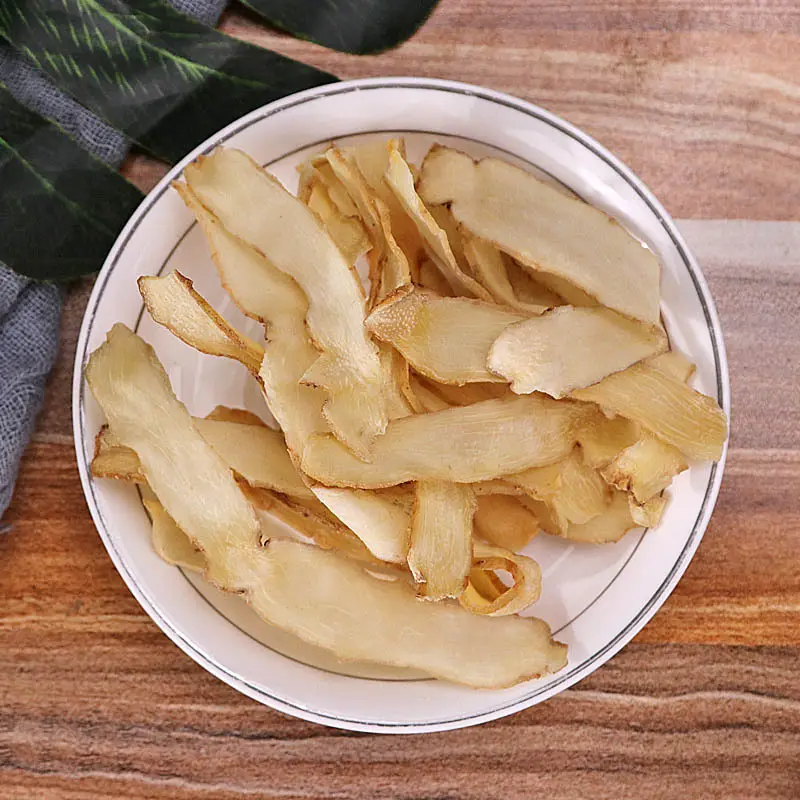
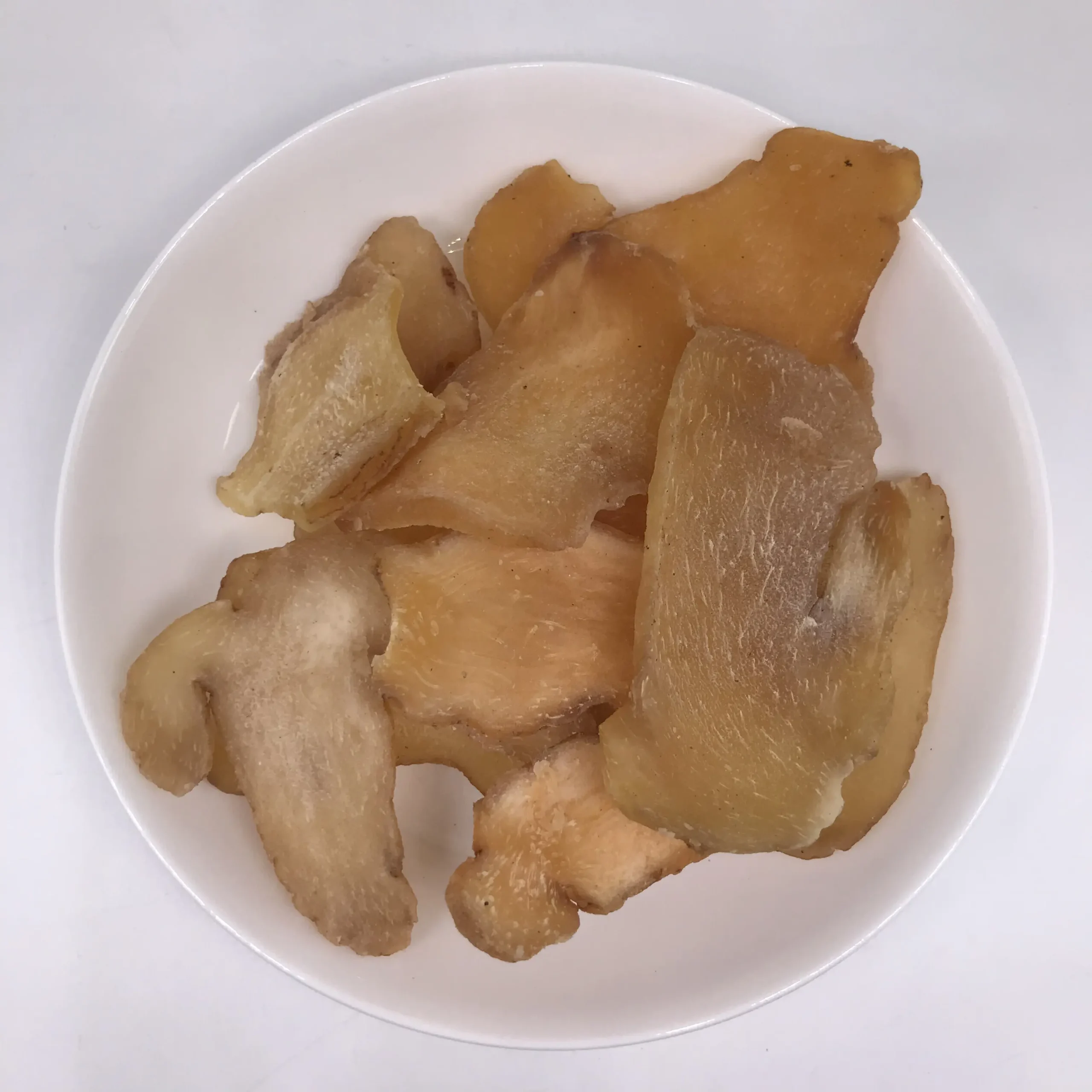
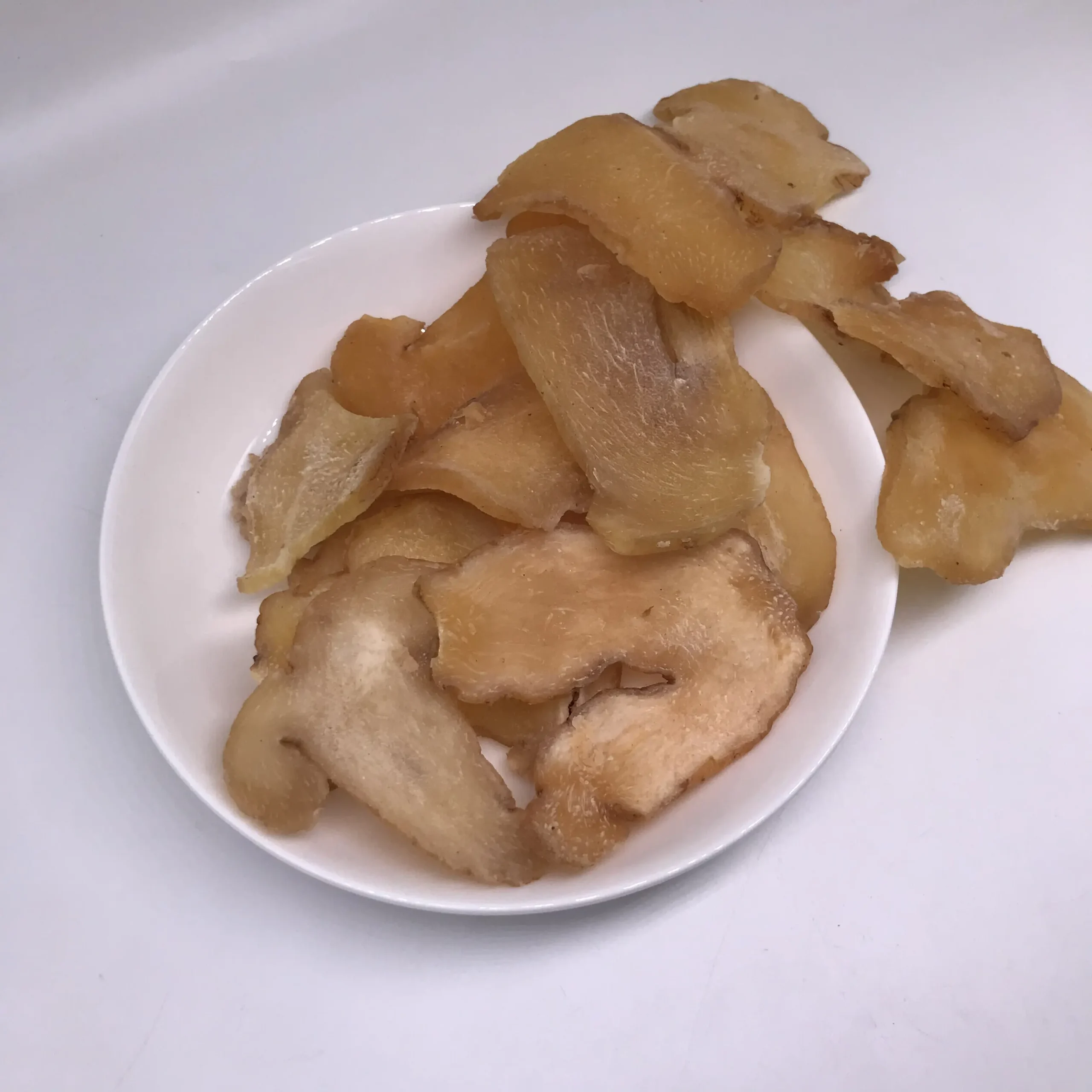

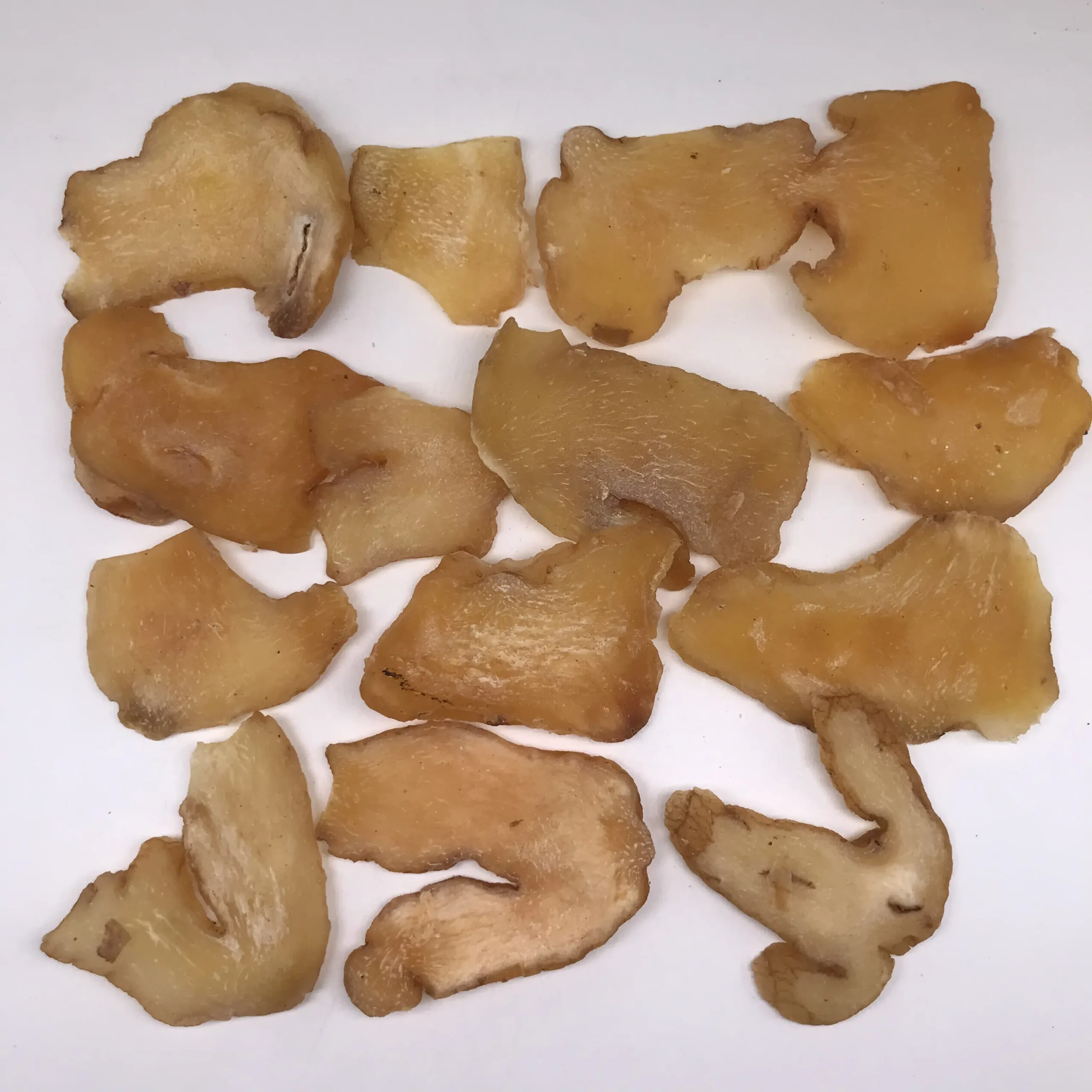
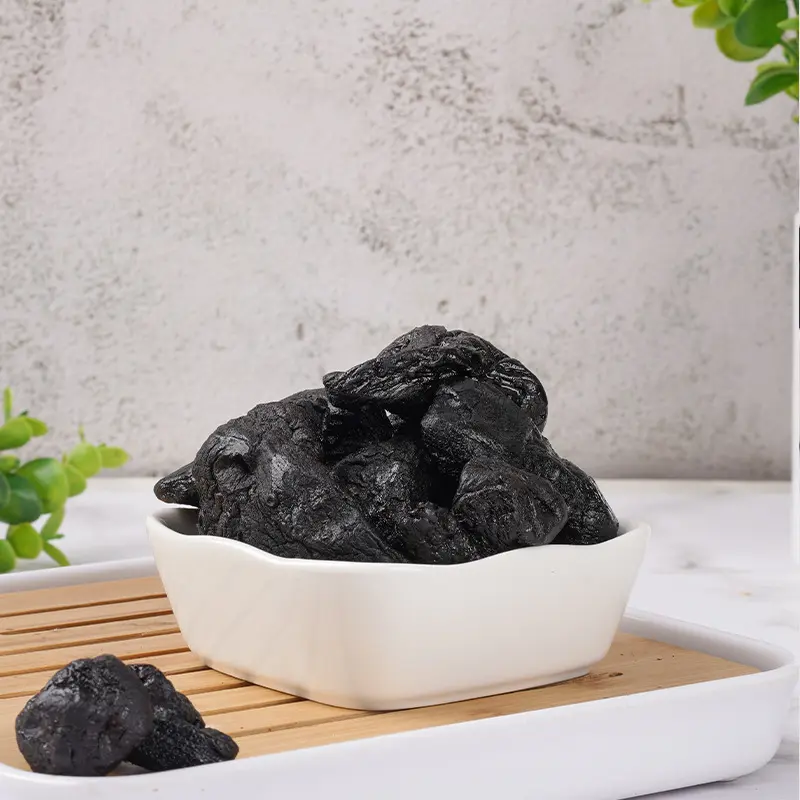

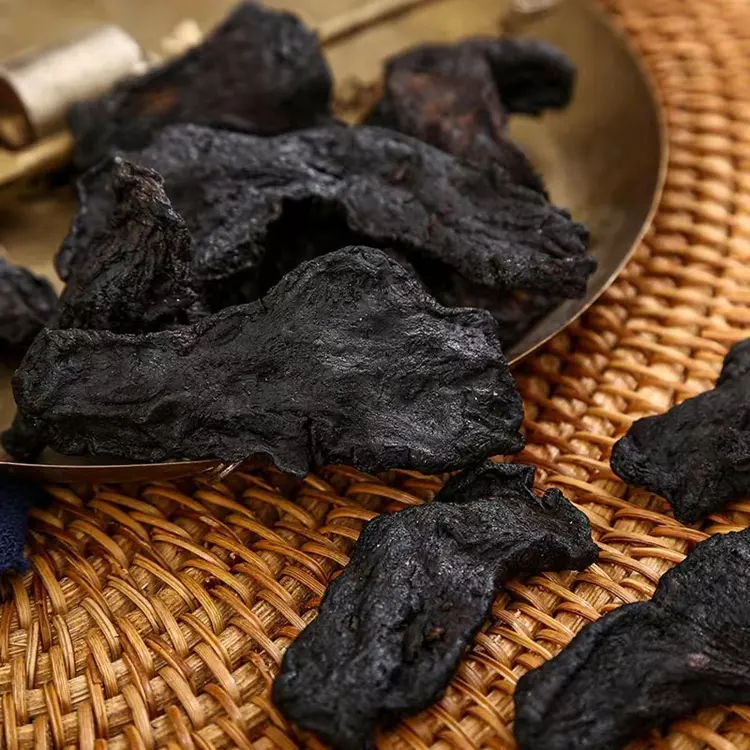
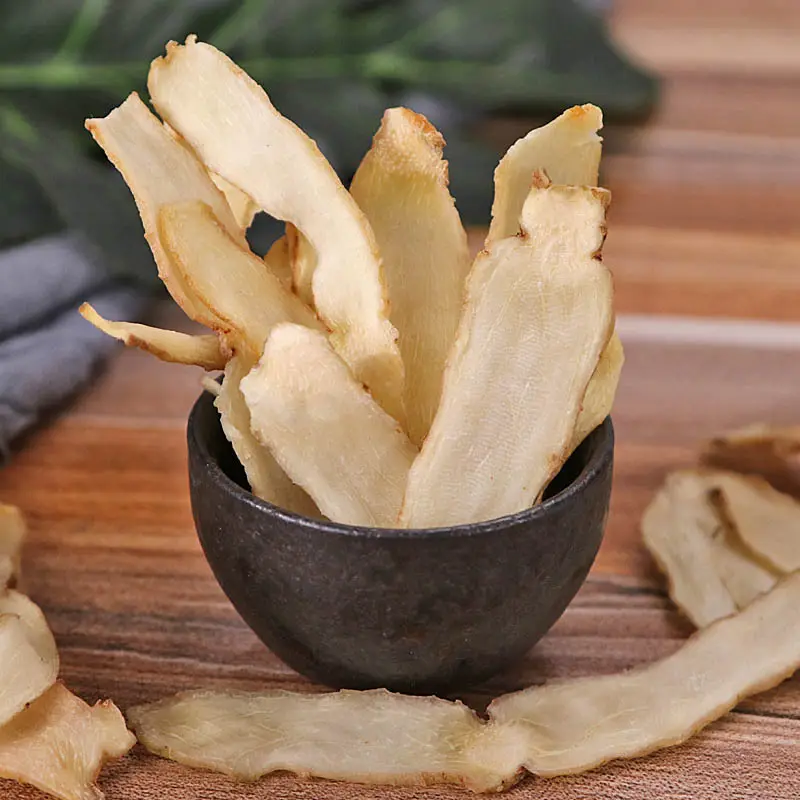
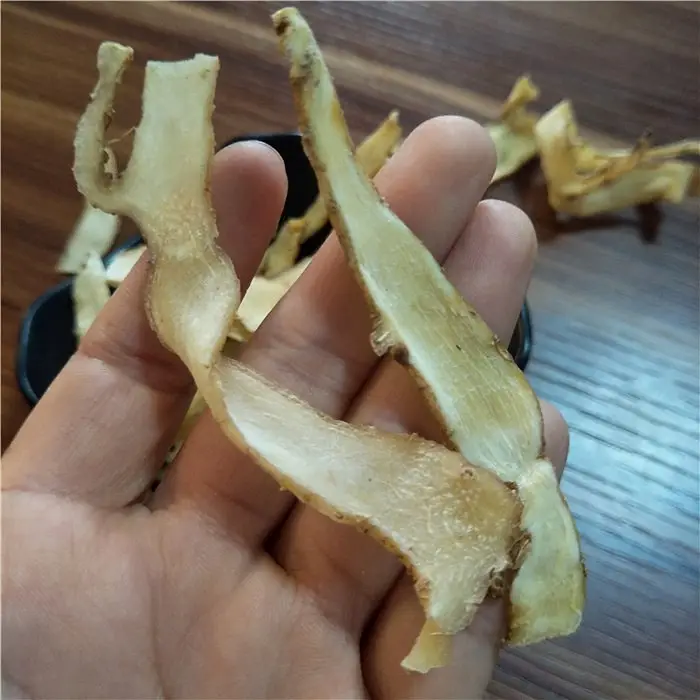


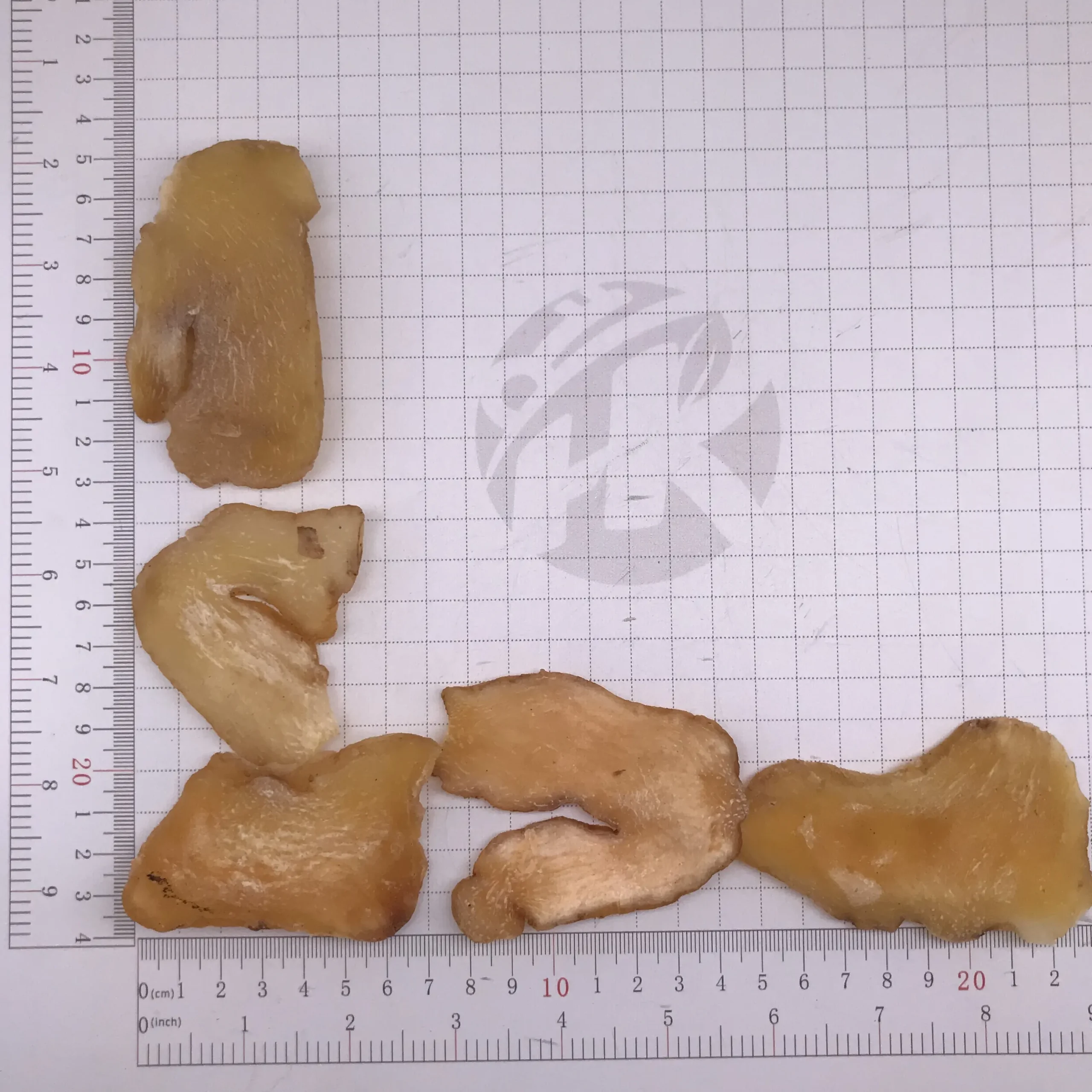

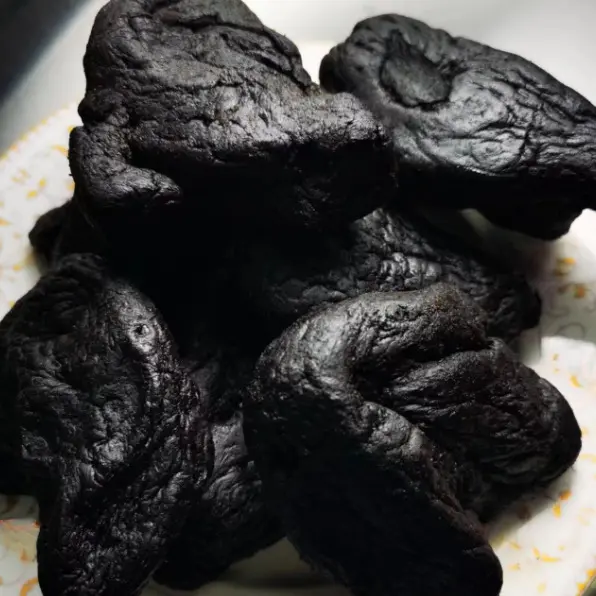

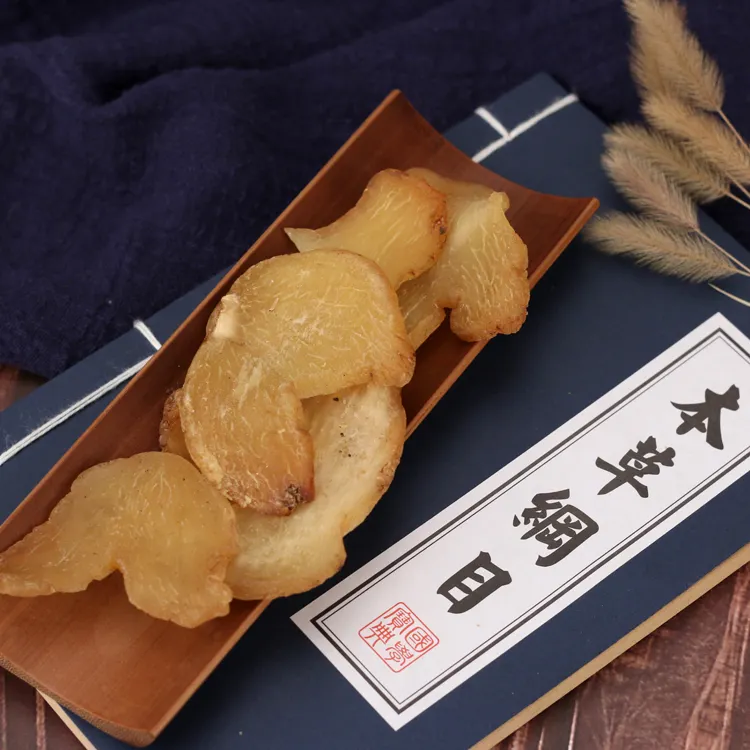
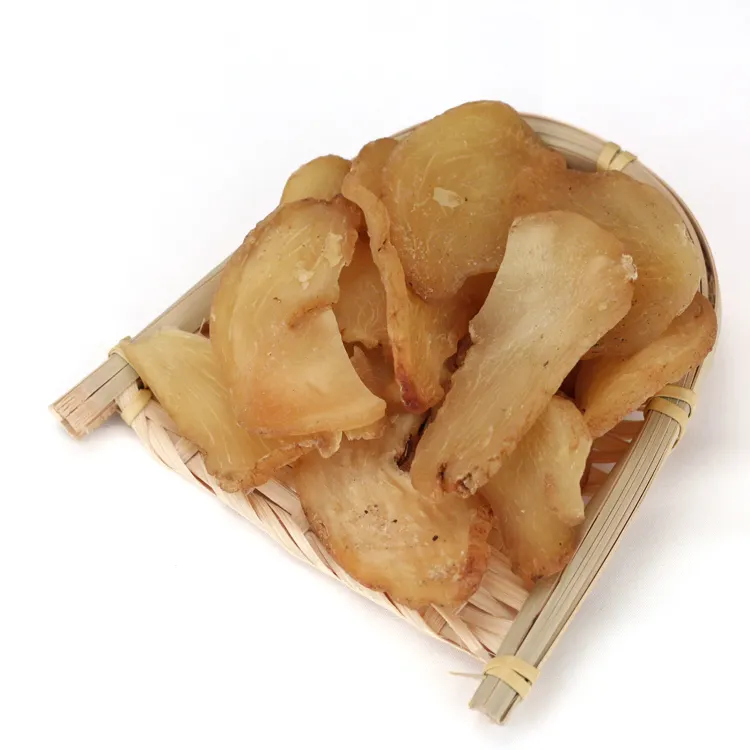
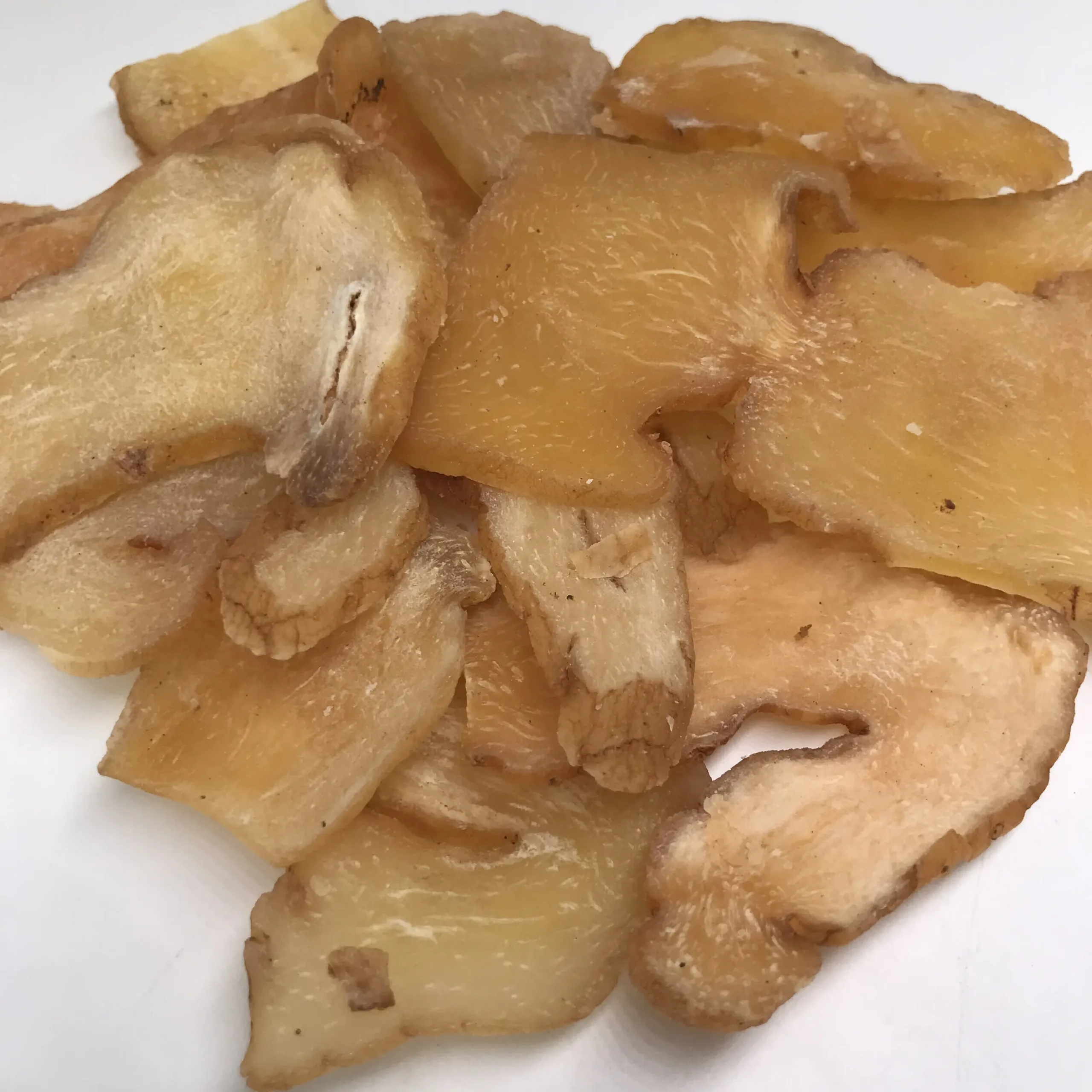
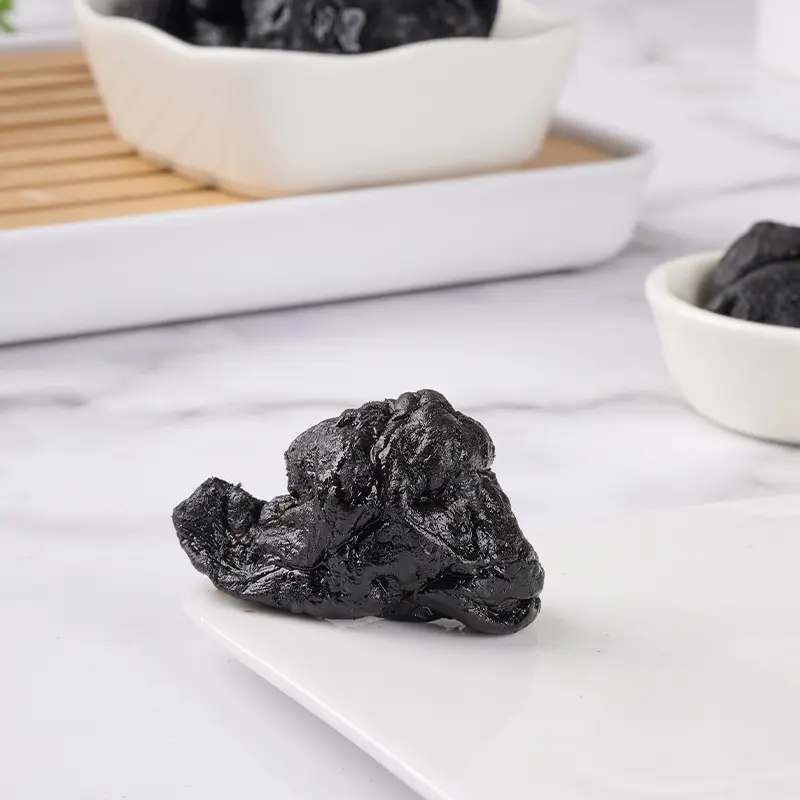

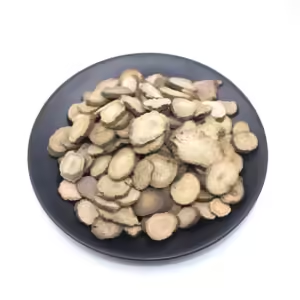
Reseñas
Aún no hay reseñas.